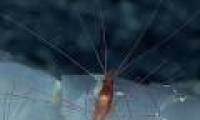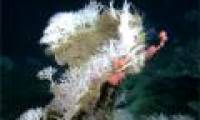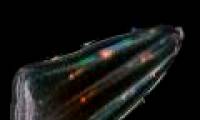
A team of Canadian and Spanish scientists has just announced the discovery of many previously unknown new organisms in the North Atlantic Ocean.

Sponges have up to 70% of genes that resemble humans, including many of the genes involved in cancer and other diseases.

The story of a pair of permanently stuck shrimps that cannot be removed from the sponge, also known as the sea of natural material programs Blue Planet II on the BBC channel, has

Sponge-like yellow objects appear along the 30km coastline in the Pas-de-Calais area, north of France, late last week, according to Gizmodo.

These are all creatures that have been discovered by biologists at the American Center for Oceanic and Atmospheric Research.

The carnivorous sponges often live and grow in the deep sea floor. For the first time, scientists discovered some carnivorous sponges about 20 years ago.

Graduate student Daniel Stoupin from the University of Queensland, Australia captured the corals and put the pictures together to see their beautiful movement.

There has long been a related theory of human origins with sponges, but new genetic research shows that a jellyfish-like species is likely to be the origin of every creature -

A photographer recorded a wave of yellow sponges hitting the coast in New Zealand. This flood caused many people surfing in Karitane's coast to panic. The sponge is high with a

Sponge (seaweed) creates glass needles up to meters long, providing effective anti-cancer substances and is able to purify seawater to remove toxins.
 A team of Canadian and Spanish scientists has just announced the discovery of many previously unknown new organisms in the North Atlantic Ocean.
A team of Canadian and Spanish scientists has just announced the discovery of many previously unknown new organisms in the North Atlantic Ocean. Sponges have up to 70% of genes that resemble humans, including many of the genes involved in cancer and other diseases.
Sponges have up to 70% of genes that resemble humans, including many of the genes involved in cancer and other diseases. The story of a pair of permanently stuck shrimps that cannot be removed from the sponge, also known as the sea of natural material programs Blue Planet II on the BBC channel, has
The story of a pair of permanently stuck shrimps that cannot be removed from the sponge, also known as the sea of natural material programs Blue Planet II on the BBC channel, has Sponge-like yellow objects appear along the 30km coastline in the Pas-de-Calais area, north of France, late last week, according to Gizmodo.
Sponge-like yellow objects appear along the 30km coastline in the Pas-de-Calais area, north of France, late last week, according to Gizmodo. These are all creatures that have been discovered by biologists at the American Center for Oceanic and Atmospheric Research.
These are all creatures that have been discovered by biologists at the American Center for Oceanic and Atmospheric Research. The carnivorous sponges often live and grow in the deep sea floor. For the first time, scientists discovered some carnivorous sponges about 20 years ago.
The carnivorous sponges often live and grow in the deep sea floor. For the first time, scientists discovered some carnivorous sponges about 20 years ago. Graduate student Daniel Stoupin from the University of Queensland, Australia captured the corals and put the pictures together to see their beautiful movement.
Graduate student Daniel Stoupin from the University of Queensland, Australia captured the corals and put the pictures together to see their beautiful movement. There has long been a related theory of human origins with sponges, but new genetic research shows that a jellyfish-like species is likely to be the origin of every creature -
There has long been a related theory of human origins with sponges, but new genetic research shows that a jellyfish-like species is likely to be the origin of every creature - A photographer recorded a wave of yellow sponges hitting the coast in New Zealand. This flood caused many people surfing in Karitane's coast to panic. The sponge is high with a
A photographer recorded a wave of yellow sponges hitting the coast in New Zealand. This flood caused many people surfing in Karitane's coast to panic. The sponge is high with a Sponge (seaweed) creates glass needles up to meters long, providing effective anti-cancer substances and is able to purify seawater to remove toxins.
Sponge (seaweed) creates glass needles up to meters long, providing effective anti-cancer substances and is able to purify seawater to remove toxins.




 Do signals from extraterrestrial civilizations detected by Sky Eye really exist?
Do signals from extraterrestrial civilizations detected by Sky Eye really exist? 'City without air conditioning' in China: People don't know what heat is!
'City without air conditioning' in China: People don't know what heat is! The element of the sun god is giving scientists a headache
The element of the sun god is giving scientists a headache Unique Village: Roofs Become Roads for Residents!
Unique Village: Roofs Become Roads for Residents! Top 7 strange psychological effects of the brain that we all have without knowing
Top 7 strange psychological effects of the brain that we all have without knowing Which is the most terrifying bedroom elixir in Chinese history?
Which is the most terrifying bedroom elixir in Chinese history? Earth's core may start rotating in reverse
Earth's core may start rotating in reverse A day in Japan can be up to 30 hours long, does this country live in a different 'timeline'?
A day in Japan can be up to 30 hours long, does this country live in a different 'timeline'?